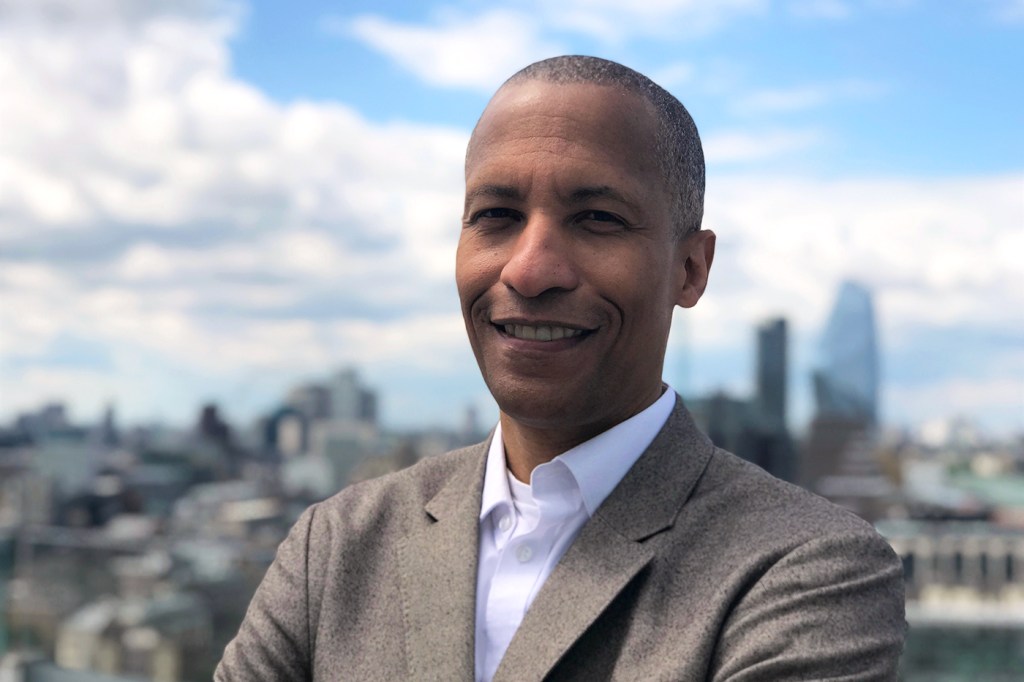Northeastern journalism grad John Simons wants to target disinformation as new executive editor of Time

News organizations should focus on delivering truth and developing trust as corrosive conspiracy theories and mudslinging erodes faith in journalism, says John Simons, a Northeastern alum who recently became executive editor at Time.
Simons is joining the vaunted publication at a precarious time for journalism, both ideologically and financially. But the 1992 graduate says he’s more hopeful than ever.
“The biggest mission for the profession of journalism right now is combating misinformation and being champions of truth,” says Simons.
“In an age when people can get taken through all kinds of rabbit holes and create their own news, trusted names and trusted organizations are rising to the top and people are gravitating to them because of a need for trusted sources,” he says.
Time has been through its own tumult over the last five years. The news magazine, once a paragon of national journalism and a prominent cultural barometer, was purchased along with Time Inc. publications in 2017 by Meredith Corp. of Des Moines, Iowa.
The new owners slashed the number of print copies by publishing twice a month instead of weekly. They then put the flagship magazine, which has more than 200 employees, up for sale. Circulation is roughly 1.6 million as of December 2020, according to the Alliance for Audited Media, a company that verifies circulation figures. It’s a steep drop from 3 million in audited circulation in 2016.
Technology mogul Marc Benioff, the founder and chief executive of Salesforce, purchased the magazine in 2018 and has said he wants to continue publishing top-notch journalism and combatting media distrust, a mission that dovetails nicely with that of Simons.
“Right now, there’s a big need for publications that people can turn to and trust for real news and real information,” says Simons. He will be managing editors and reporters while guiding coverage of national news, and business and technology coverage.
Simons says he learned about earning an audience’s trust while working at The Wall Street Journal, both as a reporter and later as an editor.
“The Journal ranks really high among trusted publications and I think it’s because the organization has strong rules and standards, things they just don’t budge on,” says Simons.
Simons had always wanted to write, but he initially started at Northeastern working toward a business major with a focus on economics. It was only after a friend suggested he try an introduction to journalism class that he realized he could make a living pursuing his passion.
“I loved that you take something you’re good at and you figure out how to make yourself useful in the world,” says Simons, who added that a journalism class focusing on local government made the biggest impression on him.
Students were told to pick a Boston neighborhood and make the beat their own. Simons chose the Fenway.
“I did all sorts of stories about people and issues confronting the neighborhood. That’s kind of what we were encouraged to do,” says Simons.
“There are very few things you can study in school and practice and do those things from the very start, and that’s what was so cool about journalism,” he says.
A Northeastern professor helped Simons get an internship at U.S. News & World Report after he graduated, and he was hired following the internship. His specialized focus on technology during the time of the internet boom helped Simons make a name for himself.
While many print news publications continue to shutter, Simons says he believes the misinformation crisis could help journalism become profitable again.
“What happened when organizations first started putting their content online for free is that it trained a whole generation of consumers to think that news should be free, and it had no monetary value,” he says.
“Over the last few years people are starting to realize that it takes real work to get things right and organizations need to hire professionals. I’m hoping that it’s only going to become clearer that to get a quality product, you need to pay for it,” Simons says.
For media inquiries, please contact media@northeastern.edu.





